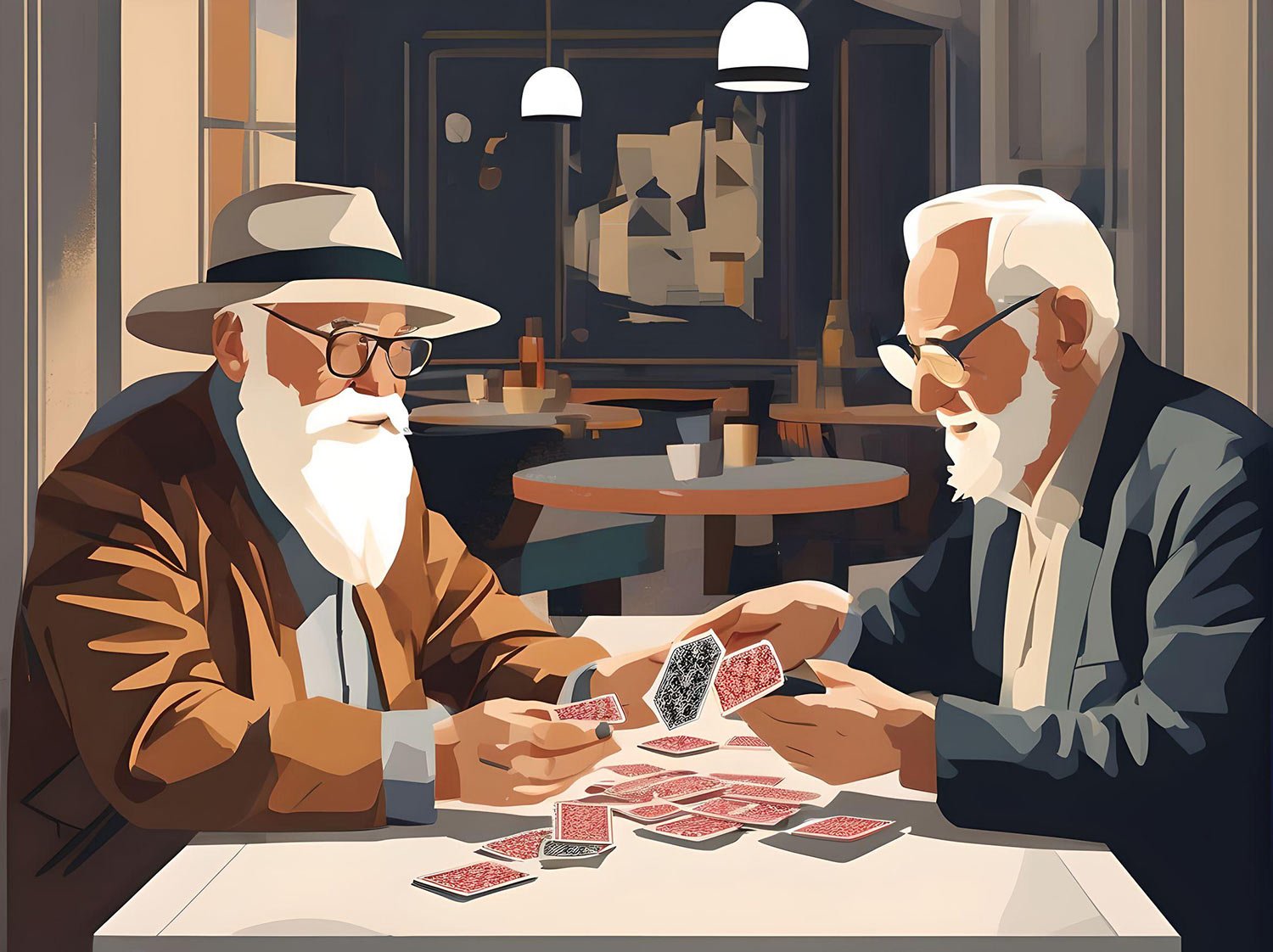A Brief History of Euchre
Card games have always held a special place in human culture, captivating hearts and minds with their blend of strategy, skill, and social interaction. Among the vast array of card games enjoyed worldwide, Euchre has emerged as a beloved pastime, particularly in North America. In this blog post, we'll embark on a journey to explore the history of Euchre in North America, tracing its origins, development, and enduring popularity.
European Roots
The origins of Euchre can be traced back to Europe, particularly to the early 19th century. It is believed to have originated from the Alsatian game Juckerspiel, which itself has roots in a French game called Juckreizspiel. This European influence can be seen in the Germanic names of the game and its components, such as Bauer (Jack) and Trumpf (Trump).
Arrival in North America
Euchre made its way across the Atlantic, finding a new home in North America. It gained popularity during the 19th century, especially in the Great Lakes region, where it became a staple of social gatherings and card clubs. The game quickly spread throughout the United States and Canada, captivating players with its unique gameplay and lively atmosphere.
The Michigan Connection
One fascinating aspect of Euchre's history is its association with the state of Michigan. Euchre took hold in the area during the mid-19th century, becoming immensely popular and deeply ingrained in local culture. The game became so synonymous with Michigan that it was sometimes referred to as the "State Game of Michigan." To this day, Euchre tournaments and leagues thrive in the state, showcasing the enduring passion for the game.
Euchre's Appeal
What makes Euchre so appealing? Firstly, its gameplay is relatively simple to learn, making it accessible to both seasoned card players and newcomers alike. The game is typically played with a deck of 24 cards, comprising the 9, 10, Jack, Queen, King, and Ace of each suit. The objective is to be the first team to reach a predetermined score by winning tricks and correctly predicting the number of tricks to be won.
Moreover, Euchre's social aspect adds to its charm. The game encourages lively banter, camaraderie, and good-natured competition among players. The ability to communicate non-verbally through the game's unique system of calling and ordering up trump cards further enhances the interactive experience.
Influence on American Culture
Euchre's influence extends beyond the realm of card games. It has seeped into American culture, inspiring references in literature, movies, and music. In Mark Twain's novel "Adventures of Huckleberry Finn," Euchre is mentioned as a popular game played by the characters. Additionally, Euchre's prominence in the Midwest and its association with Michigan have led to cultural references and depictions in various forms of media.
Modern Euchre and Online Communities
With the advent of digital technology, Euchre has found a new lease of life in online communities. Numerous websites and apps now allow players from across the globe to connect and enjoy a game of Euchre, transcending geographical boundaries. This virtual community has helped to sustain and expand the game's popularity, keeping the tradition alive in a modern context.
Conclusion
Euchre's journey from Europe to North America has seen it evolve into a cherished card game with a rich history and devoted following. Its simplicity, social nature, and enduring appeal have ensured its place as a beloved pastime, particularly in North America. In a world that seems increasingly more turned upside down, maybe all it needs is Euchre.

